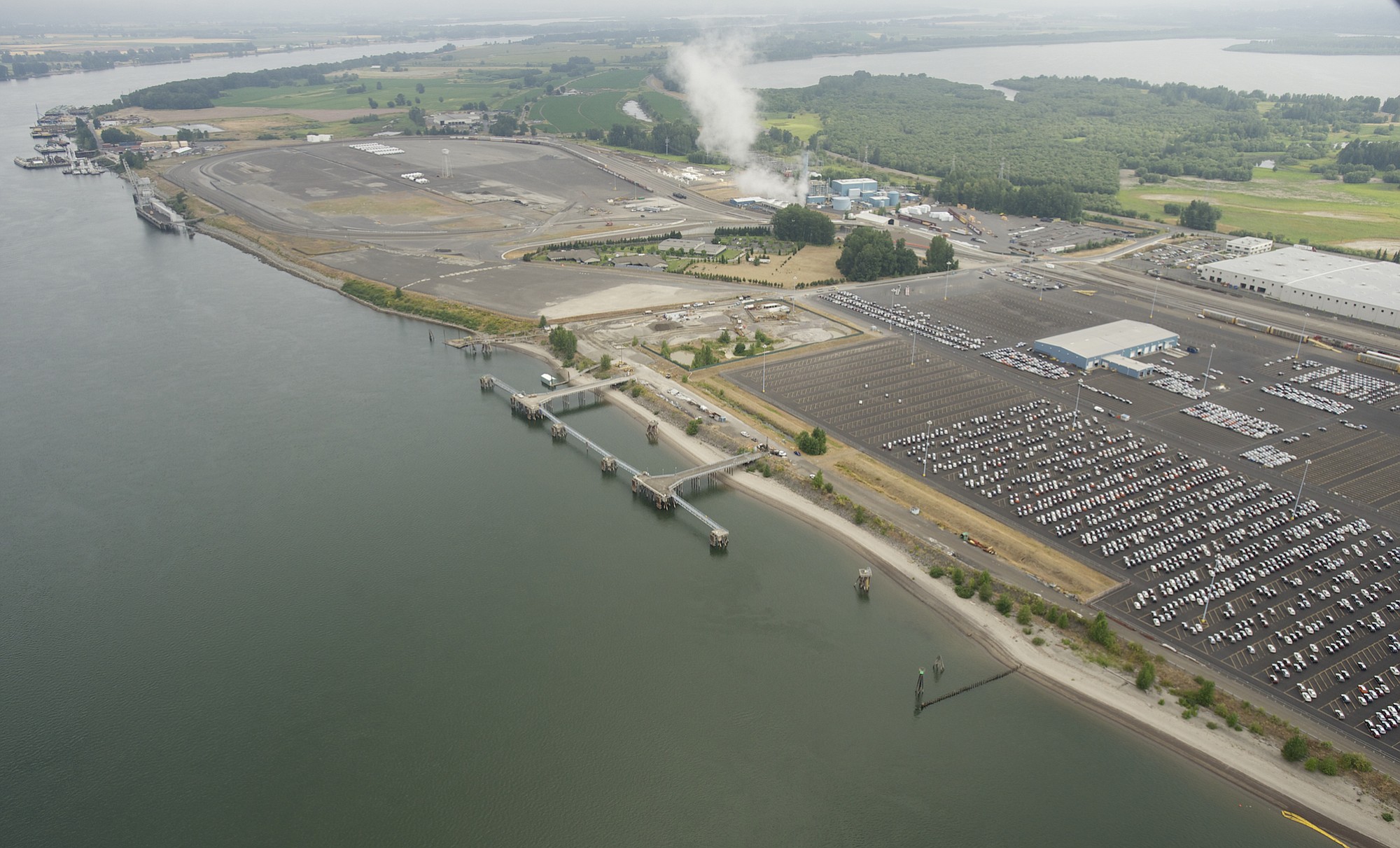Opponents and backers of a proposal to build the nation’s largest oil-by-rail terminal at the Port of Vancouver are battling over the timing of legal proceedings that will help decide the proposal’s fate.
Critics argue the Washington State Energy Facility Site Evaluation Council is rushing to launch a courtlike trial of the oil terminal’s merits before the draft analysis of the project’s environmental impacts is issued for public review and comment.
Backers of the oil terminal contend the evaluation council needs to clarify the project’s remaining steps of review and how much time it will take. They also say they shouldn’t have to commit to an “open-ended” permit review.
The evaluation council on Tuesday is expected to vote on whether to launch the oil terminal’s “adjudicative process” — the courtlike trial during which opponents and backers argue over the project’s merits, present competing evidence and call expert witnesses.
But that action, on the council’s agenda for its regular public hearing in Olympia (accessible by telephone, 360-664-3846), would only kick off pre-hearing meetings to clarify such things as hearing timelines and “the general discovery that needs to occur so the hearings can proceed,” according to Amanda Maxwell, a spokeswoman for the council.
The council is expected in May to release the draft environmental impact analysis for public review and comment. Maxwell said the council will not begin the oil terminal’s actual trial hearings until the draft impact analysis is released.
However, multiple environmental groups and the private developer of Vancouver’s waterfront say it doesn’t make sense to kick off any such legal proceedings until the content of the draft impact analysis is fully understood by all parties involved.
The value of any prehearings “will be very limited” as the parties’ ability to prepare for the oil terminal’s trial, including identifying witnesses, “will be constrained without the benefit of the information” in the draft impact analysis, according to Linda Larson, an attorney for Columbia Waterfront LLC. That company has proposed a $1.3 billion residential/commercial redevelopment of Vancouver’s waterfront. Larson sent her letter to the council last Wednesday.
In a letter to the council two days later, Kristen Boyles, an attorney for Earthjustice, said that “while we have no opposition to reasonable schedule clarity, we are very opposed to beginning the adjudicative process early in an effort to appease project proponents.”
Boyles wrote the letter on behalf of Columbia Riverkeeper, Friends of the Columbia Gorge, Washington Environmental Council, Sierra Club, ForestEthics, Climate Solutions and Spokane Riverkeeper.
The letters come in response to an item on the evaluation council’s Tuesday agenda: “commencement of adjudication.” The agenda also states that “staff will give a presentation on the adjudicative process and the Council may take Final Action on commencing adjudication.”
The agenda item comes about a month after Jay Derr, an attorney for Vancouver Energy — the joint Tesoro Corp. and Savage Companies venture proposing to build the oil terminal at the Port of Vancouver — sent a Dec. 17 letter to the evaluation council raising concerns about how much time the permit review is taking.
He reiterated his concerns about delays in a letter to the council on Friday, adding that the council has a long history of launching trials of projects before draft impact studies are issued, and that it can be done without harming public participation.
Application filed in 2013
Tesoro and Savage filed their permit application with the evaluation council on Aug. 29, 2013.
By law, the evaluation council must reach a thumbs up or down recommendation to Washington’s governor within 12 months of receiving an application for a large energy project proposal. But the law also allows deadline extensions, which are not unusual given the size and complexity of proposals.
The evaluation council has already extended the deadline for a recommendation on the oil terminal to March 2.
In his Dec. 17 letter to the council, Derr said Tesoro and Savage “do not think it is appropriate to be asked to agree to an open-ended extension.” He also urged the evaluation council and its staff to meet milestones so that the draft environmental impact examination “will be available as soon as possible, but by May 2015 at the latest.”
Opponents, meanwhile, are concerned the evaluation council will rush the process. In her letter, Boyles, the Earthjustice attorney, said the council has repeatedly said the oil terminal’s trial will begin after the draft impact analysis is published. Yet Tuesday’s agenda suggests the council “may reconsider this position.”
Boyles argues that beginning the trial now will only make it difficult for parties to decide whether to intervene and to identify their areas of concern. Moreover, she said, a central purpose of reviewing the oil terminal under the state’s Environmental Policy Act is to “ensure that the Council’s recommendation is made with full awareness of its potential environmental and public health consequences.”
Meanwhile, Port of Vancouver commissioners are expected to attend the evaluation council’s Tuesday hearing. Port officials said commissioners will be in Olympia that day anyway, attending a legislative event held the by Washington Public Ports Association.




